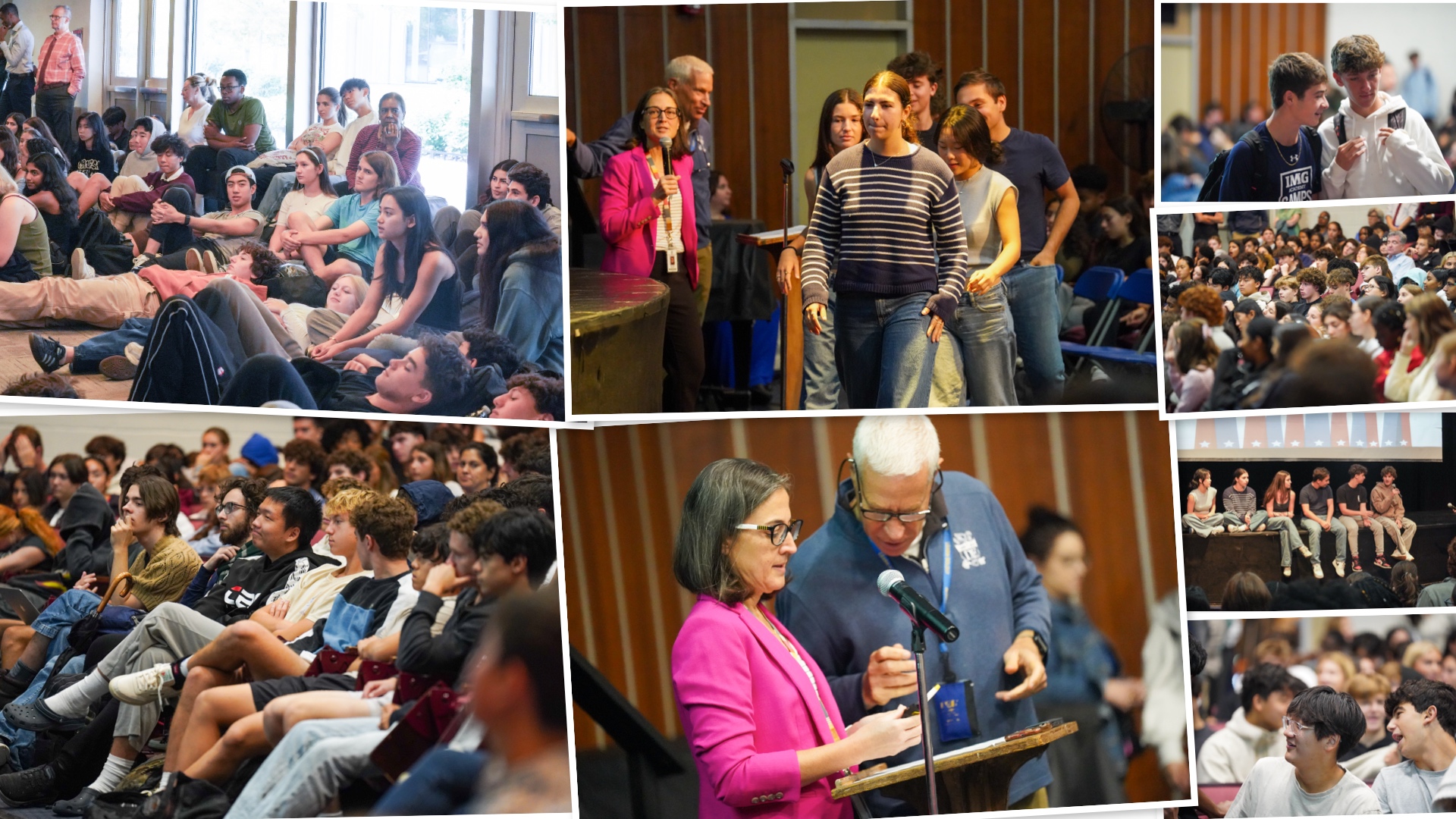The 2024 Presidential Election is nearly upon us—and in preparation, D-E Upper School students attended the first of a series of assemblies on election literacy in Schenck Auditorium.
Grade 11 (Class of 2026) Dean Emily Sclafani began the inaugural program on Thursday, September 26, with an overview of the Electoral College, diving into questions such as how many votes it takes to become President of the United States (Spoiler alert: 270) and why the founders designed the EC this way.
Ms. Sclafani also noted that there have only been five times in the nation’s history that the president did not win the popular vote—in 1824, 1876, 1888, 2000, and 2016. And while the Electoral College is unpopular among two-thirds of Americans, according to recent polls, a Constitutional Amendment would be required to change how we elect our president, a move that’s a high hurdle in such a politically divided Congress as our current one.
US Economics Teacher Peter Waltman spoke next to recap the current state of the 2024 Presidential Election now that Joe Biden has dropped out and endorsed his VP, Kamala Harris, for the top of the Democratic ticket.
“Presidential election campaigns are typically a marathon, not a sprint,” he said, “but [in light of this development] it is now a sprint, not a marathon.”
Mr. Waltman also indicated which Swing States are up for grabs and demonstrated several potential paths to victory for the candidates, based on the numbers.
On the topic of election issues, students who were called upon in the audience stated that the top concerns they’d heard around the proverbial kitchen table were immigration, the economy, abortion, and foreign policy.
Mr. Waltman then invited all students, whether they were yet eligible to vote or not, to tune in at 9:00 p.m. on Tuesday, November 5 to watch the returns, with a caveat that we likely won’t know the outcome until hours or even days later.
The assembly concluded in democratic fashion with a panel of six students from D-E’s political clubs discussing their views on the Electoral College—with each of them remarking that we could do better than this system. Asher Cohen ’25, for one, was in favor of ranked-choice voting, which he said, “leaves room for independents.” In fact, the D-E student council was elected this way!
D-E Upper School (US) students can look forward to future, upcoming election-related US Assemblies, designed to empower and engage them – as well as our faculty/staff – in continuing the discourse.

